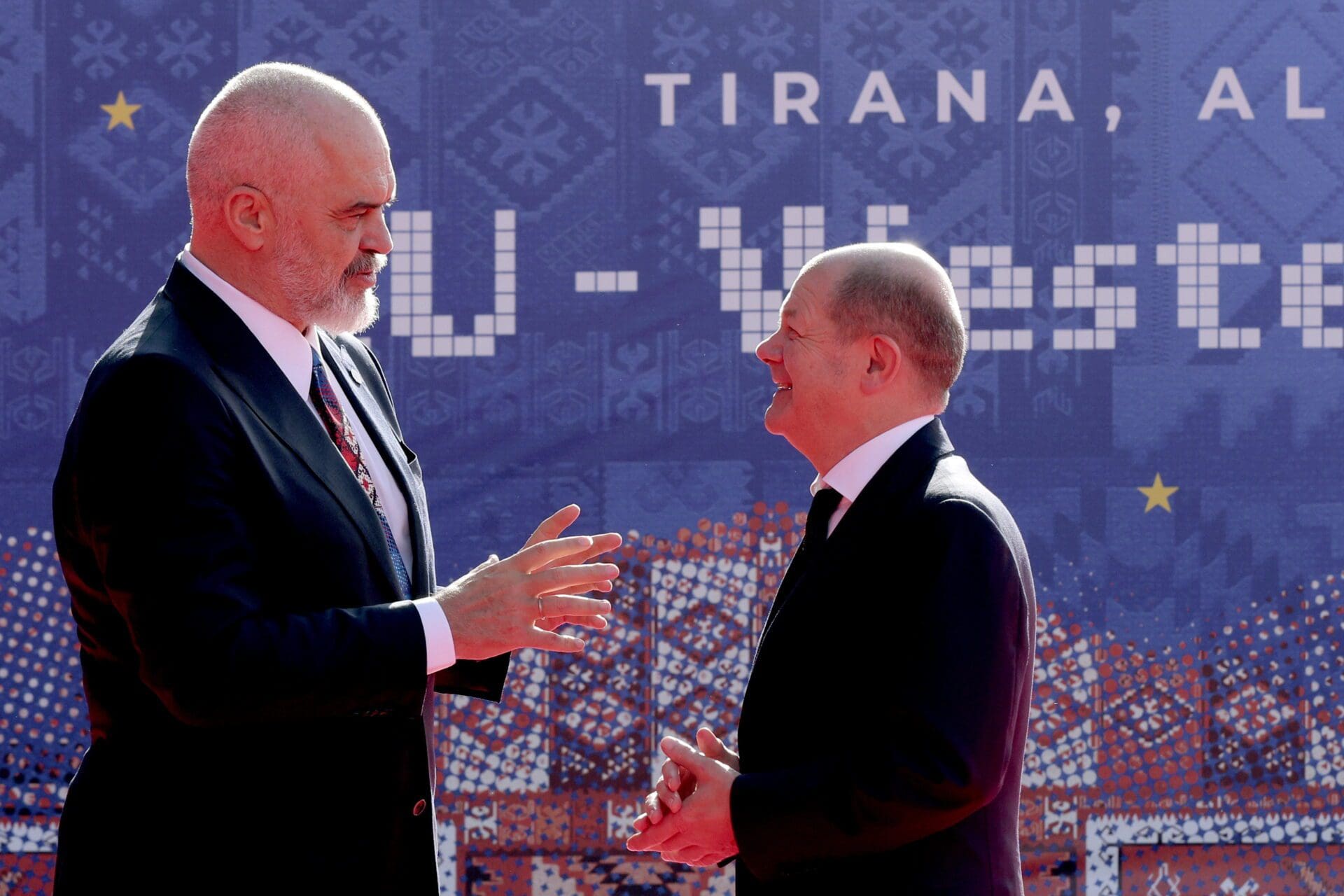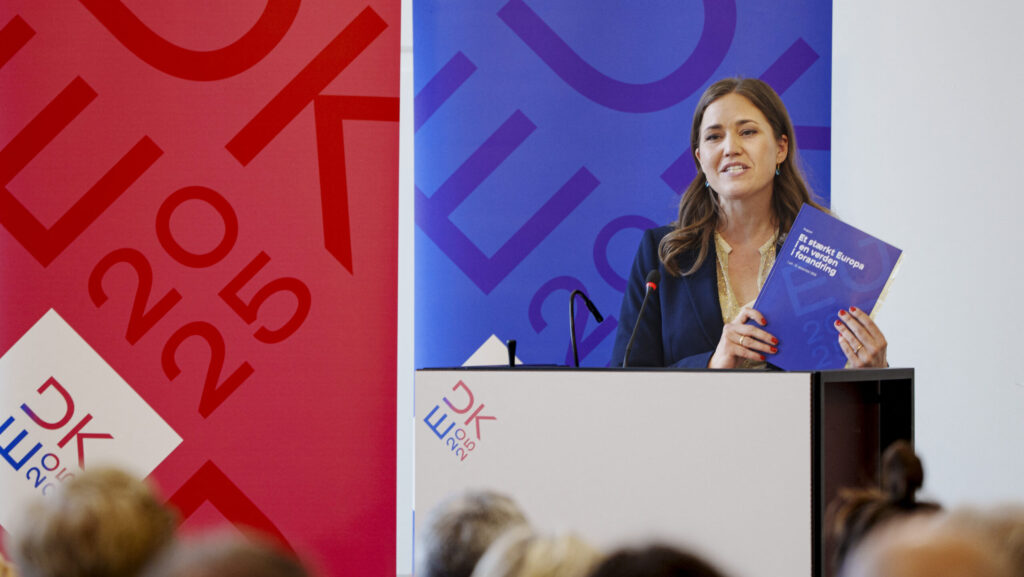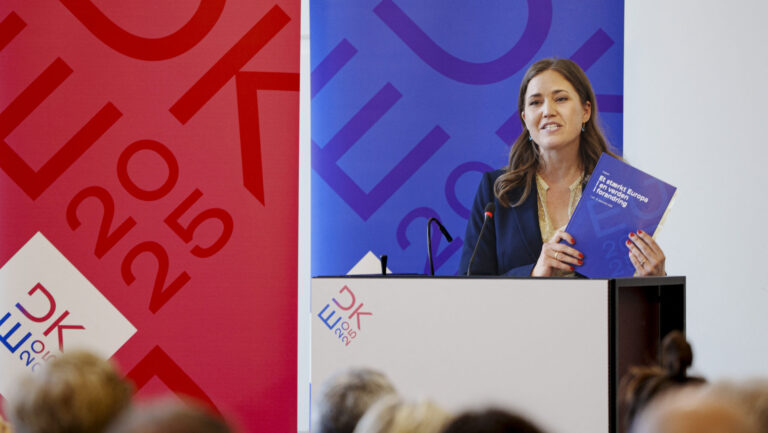The outcome of the EU-Western Balkans Summit in Tirana on 6 December proved that Russia’s war in Ukraine has valorized the region for Brussels, due to concerns over European energy security. However, this still does not mean there will be a fast-track to accession for these Balkan countries.
Half a Billion for Renewables
The European Union will support six energy projects in the Western Balkans with a non-reimbursable grant of €500 million and an additional €500 million to help the region mitigate the effects of the energy crisis. This was among the agreements reached by the countries concerned at the EU-Western Balkans Summit on 6 December in Tirana, the capital of Albania.
Of the half a billion euros earmarked to alleviate the consequences of the energy crisis, Serbia will receive €165 million, Northern Macedonia and Albania €80 million each, Kosovo €75 million, Bosnia and Herzegovina €70 million and Montenegro €30 million.
The non-reimbursable half a billion euros will go to disadvantaged households and small and medium-sized enterprises, while the other half a billion will be dedicated to supporting short- and medium-term investments in the region, in particular in renewable energy sources.
‘Renewable energy is cheaper; it is affordable; it is cleaner; it is better for our planet; it is home-grown. It provides good jobs here at home, so it gives independence and security of supply. The investments of these EUR 500 million will of course go in renewables, interconnections, so infrastructure, but also energy efficiency,’ said European Commission President Ursula von der Leyen at the summit, according to Balkan Green Energy News.
The short- and medium-term energy investment programme is part of the Western Balkans Economic and Investment Plan, which includes a €9 billion non-repayable budget and is expected to trigger €30 billion of investment in the region. The €1 billion announced at the summit will be paid to the countries concerned from the IPA3 pre-accession assistance instruments and, as stated in the declaration, will be used to mobilize a total of €2.5 billion (€1,040 billion) of investment in the region.
LNG is Also Important
The €500 million support for energy transition and independence will also cover infrastructure investments, including the construction of pipelines for the transport of liquefied natural gas (LNG), renewable energy and energy efficiency measures, system upgrades, district heating and energy efficiency improvement programmes.
The Tirana declaration recalls that the EU has already taken initiatives with the Western Balkan countries to jointly purchase natural gas, LNG and hydrogen, and is being encouraged to do so to get these platforms up and running quickly. As stated, the recently adopted REPowerEU plan will help to reduce the EUs and the Western Balkans’ dependence on Russian gas. And through the Energy Community, the EU will open up its electricity market (including renewable energy) to the Western Balkans, provided that the necessary regulatory reforms are in place.
No EU Accession on the Horizon
In a joint statement EU leaders pointed out after the summit that Russia’s war against Ukraine is increasingly threatening the peace and security of Europe and the world. This further underlines the importance of a strategic partnership between the EU and the Western Balkans. The EU intends to remain the region’s closest partner, main investor, trading partner and biggest donor, according to the joint statement issued after the Tirana summit.
In Tirana, EU leaders called on the countries concerned to accelerate the regional association process by implementing credible reforms. In this process, the EU supports regional cooperation in the Western Balkans and the strengthening of good neighbourly relations, including with Member States. At the meeting the importance of the Prespa agreement with Greece and the good relations with Bulgaria were underlined, as well as the need for further energy investment by the countries of the region to preserve regional stability.
However, besides the significant grants and investments agreed upon by the EU, and the bloc’s support for the regional association process, what Tirana didn’t draw closer is the holy grail for the Western Balkans: fast-tracked EU accession.
Of course, the lesson from the EU-Western Balkans summits of recent years may be that beyond EU funds and talks of economic and political reforms in the region, the prospect of EU accession for these countries is not on the table. So Tirana fits perfectly into the pattern of recent years: it is business as usual.
‘Well, this year it is supposed to be different, and the reason is obvious: the war in Ukraine. The military and political threat Russia poses has prompted the EU to up its game in what could be described, for the lack of a better term, as Wider Europe,’ Dimitar Bechev argued on the website of Carnegie Europe.
Hungary’s Advocacy for the Region
Hungary has long been a supporter of the EU integration of the Western Balkans, both on its own and using the V4 format. Budapest believes that, given the region’s geographical location, the Western Balkans have strategic importance for the EU in terms of security, stability, trade and transit routes. Due to its proximity to the region, the accession of the Western Balkans countries is also in Hungary’s national security interests since these states, constituting the southern entrance gate of Central Eastern Europe, are essential in securing peace and stability in the region.
‘The European Union has a historic responsibility to give impetus to the enlargement of the Western Balkans, and failure to do so would seriously harm the security interests of the community, including Hungary,’ Hungarian Minister of Foreign Affairs and Trade Péter Szijjártó argued after meeting with his Bosnian counterpart in Budapest in July.
For the Western Balkans, the fact that Hungarian Olivér Várhelyi was appointed European Commissioner for Neighbourhood and Enlargement in the von der Leyen Commission in 2019 could greatly facilitate the moving forward of the accession process. Among Mr Várhelyi’s responsibilities is ensuring a credible European Union perspective for the Western Balkans, including progressing on the accession process or supporting proposals on opening enlargement negotiations with the Republic of North Macedonia and the Republic of Albania.
‘We Europeans not only know that Europe’s stability, security and development are not possible without the full integration of the Western Balkans, but we are ready to act. We must now work very hard with the candidate countries to accelerate preparations and eventually full integration,’ Mr Várhelyi told Euractive in July, summarising the desirable direction of EU enlargement policy in the context of the war.








